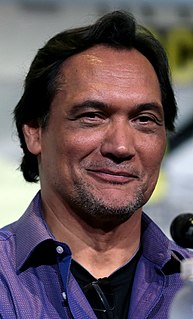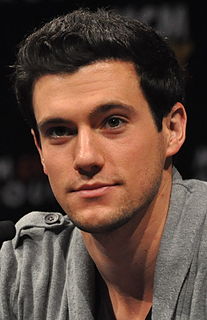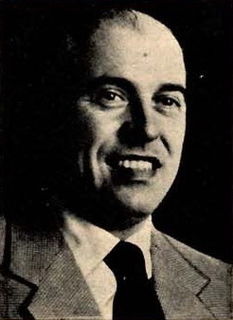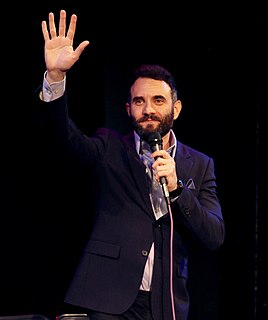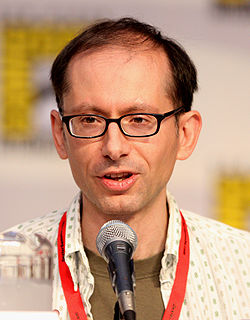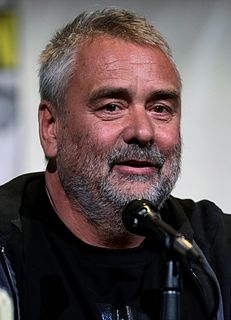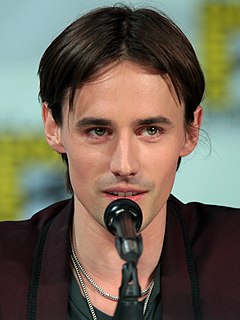A Quote by Jack Nicholson
It [TV] is the cancer of film. It's why people can't be educated to film. In the late '60s, we expected to see a movie or two every week and be stimulated, excited and inspired. And we did. Every week after week. Antonioni, Goddard, Truffaut - this endless list of people. And then comes television and home video. I know how to work exactly for the big screen, but it doesn't matter what I think about the art of movie-making versus TV.
Related Quotes
The first thing I say when people ask what's the difference [between doing TV and film], is that film has an ending and TV doesn't. When I write a film, all I think about is where the thing ends and how to get the audience there. And in television, it can't end. You need the audience to return the next week. It kind of shifts the drive of the story. But I find that more as a writer than as a director.
I think people overplay the 'Saturday Night Live' schedule. I mean, yeah, it can be some late hours. But the late hours are usually only one or two nights out of the week. You might have a crazy six-day week, but you'll work three weeks, and then you get a week off work. I'd take most jobs if it was hard work and then I got a week off.
In my opinion, visual effects are great when it compliments a good story, and action is great when it compliments a good story, but just to have them for the sake of having them, it gets a little boring, especially if you're talking a TV series. At least with a movie that's an hour and a half to two hours, you see it and you're impressed, and then you're out. With a series, if it's only that, week after week after week, there's nothing there to bring you back. You have to get invested in the characters and care about them and want to follow them.
Video store arguments really bother me. Let's say it's a slow night on campus so you decide to stay in and rent a movie. You're in the video store and finally pick one out and your friend says, 'Oh, don't get that, it was on TV last week.' I hate when people say that. Who cares? Is it on TV right now? No? Good, then let's rent it.
People love that kind of beginning, middle, and end. They like that comfort of turning on the TV week-to-week and being entertained with a good story. There's nothing wrong with TV franchises because, first of all, they're successful. They just make people feel good and hopefully make people think about other people.
Maybe if I'd gone in younger, I wouldn't have had that feeling, but I've seen an enormous amount of changes since the early-'70s in how this stuff is shot. I did the first TV movie ever shot in 18 days; before this film the normal length of shooting a TV movie was between 21 and 26 days. We shot a full-up, two-hour TV movie in 18 days with Donald Sutherland playing the lead, who had never worked on television before.
I was on Broadway for three years with Spiderman and that amount of time spent on a show - it's a grind being on Broadway. The people that do that are probably the hardest working people. I shouldn't say that, because there's a lot of hard work that goes on in film and television, as well. That consistency of the grind of eight shows a week - I feel ready to go back to it now after having a bit of a break. I like to have the chance to jump between different art forms, whether it be theatre, film, TV, music. It's really wonderful to have opportunities in different arenas.
From a writing standpoint, maybe television is a little more satisfying because it's not all hinging on one thing. You can experiment, week to week, and you can be a little narrower in your scope one week, and then be a little broader the next week. But with film, everything can look the way you want it to look. You can really sculpt the final product. So from a directorial standpoint, film is more satisfying. But, they're both forms of media that I'd like to keep involvement in.



